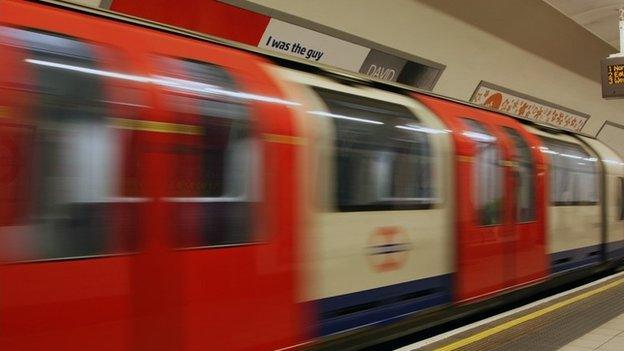Labour MP faces backlash over women-only carriages idea
- Published
- comments
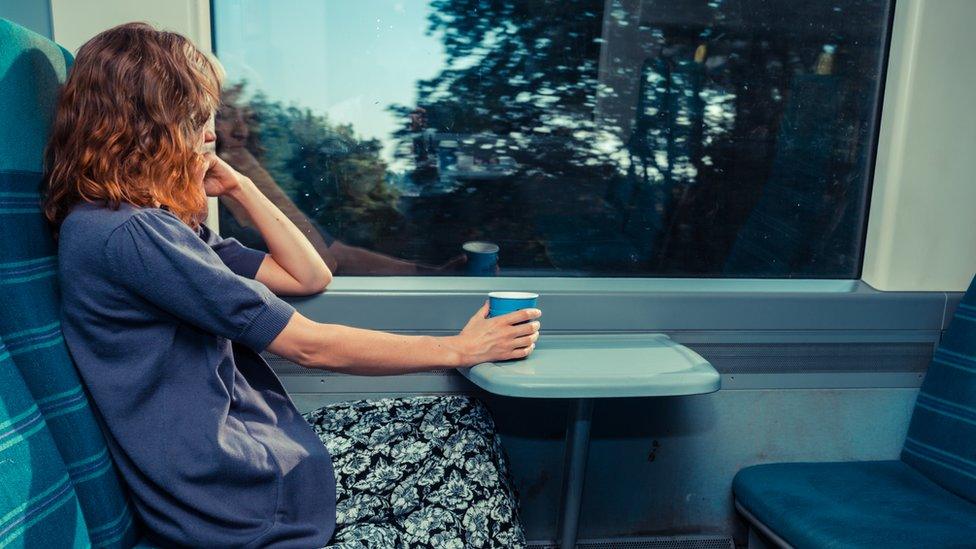
Women's rights groups and Labour colleagues have criticised a shadow minister for saying female-only train carriages should be considered.
Chris Williamson said they were an "idea worth exploring" to reduce sexual offences and create "safe spaces".
But Labour's former transport secretary said it was an "absolutely crazy idea", while another of the party's MPs said it "normalised attacks".
Labour leader Jeremy Corbyn floated the policy in 2015, but later dropped it.
Mr Williamson, shadow fire minister, highlighted figures from the British Transport Police showing 1,448 sexual offences on trains had been reported in 2016-17, compared with 650 incidents in 2012-13.
The MP for Derby North told the BBC's Victoria Derbyshire show: "I'm not saying we should go down this road at all, I'm merely suggesting that we consult on it."
He said it was about being able to offer "that safe space for people if they wanted it".
While Mr Williamson said better security and more guards were needed to tackle the problem, he agreed there should be a "push for behaviour change".
Speaking to BBC Radio 5 live, Labour's former Transport Secretary Lord Adonis dismissed the idea, saying women would find it "grossly insulting".
"The idea that they would be herded into separate carriages when the point at issue is a very tiny number of men who don't behave properly."
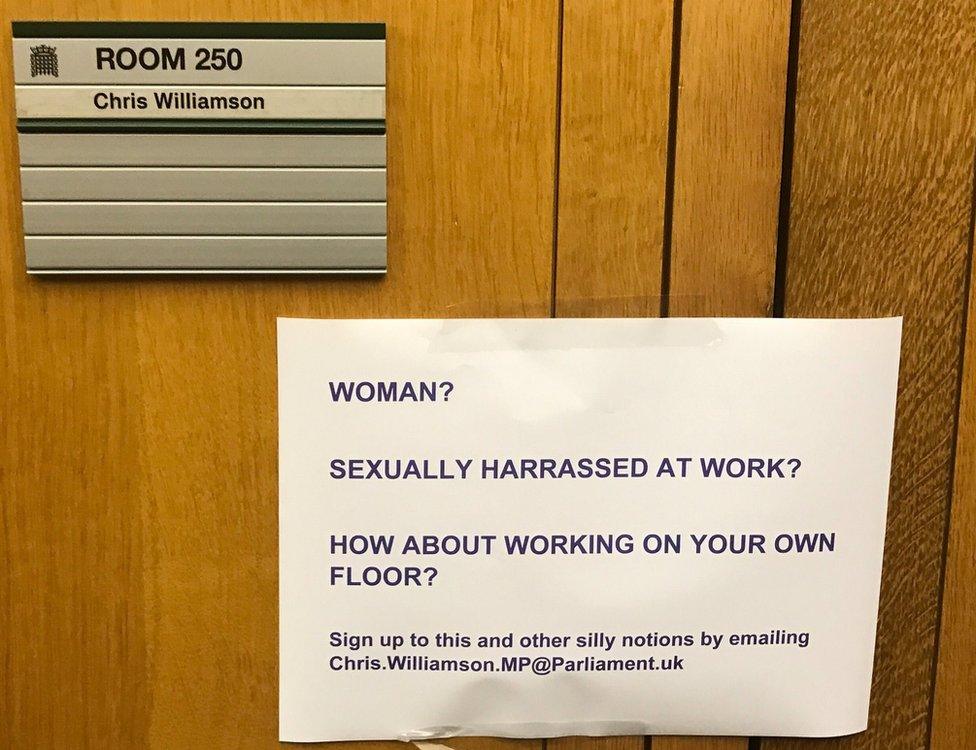
A sign appearing to mock Mr Williamson was posted on his Commons door
Countries including Japan, Brazil and Mexico have tested women-only carriages and the UK has had ladies-only compartments before.
About 100 still existed on services between London and Essex when the decision was made to phase them out altogether in 1977.
Several female Labour MPs have been vocal in their criticism of the idea, while a sign also appeared on the door of Mr Williamson's parliamentary office, apparently mocking the proposal.
The printed note said: "Woman? Sexually harassed at work? How about working on your own floor?"
'Gone wrong'
Walthamstow MP Stella Creasy tweeted, external: "Can we make all carriages safe for all passengers rather than restricting where we can go?
"[It] doesn't keep women safe to restrict their movements - it normalises attacks. We need to be clear they [the attackers] are problem, not women's seating plans."
Jess Phillips, Labour MP for Birmingham Yardley, said the policy was an "absolutely terrible idea".
She tweeted, external: "Also, men should be incredibly annoyed by [the] suggestion they can't control themselves.
"Sexual violence isn't about urges, it's about power. If you take your feminist cues from Saudi Arabia, you've gone wrong."
Allow X content?
This article contains content provided by X. We ask for your permission before anything is loaded, as they may be using cookies and other technologies. You may want to read X’s cookie policy, external and privacy policy, external before accepting. To view this content choose ‘accept and continue’.
The Women's Equality Party founder, Catherine Mayer, said it had not changed its opinion since the Labour leader first proposed women-only trains.
Allow X content?
This article contains content provided by X. We ask for your permission before anything is loaded, as they may be using cookies and other technologies. You may want to read X’s cookie policy, external and privacy policy, external before accepting. To view this content choose ‘accept and continue’.
Laura Bates, from Everyday Sexism, a website which documents instances of daily discrimination, told Victoria Derbyshire she would "never suggest segregation is the answer".
"It has to be about sending a clear message that this issue, which is already so normalised in our society, can be further normalised by the idea that women should simply go somewhere else."
Campaign group End Violence Against Women expressed concern the policy does "nothing to tackle perpetrators".
"And what happens when a woman doesn't opt to use a segregated carriage - is she somehow to blame if she is then attacked?"
Mike Whelan, general secretary of train drivers' union Aslef, said "gender apartheid" on public transport was not the answer and it was up to operating companies "to make sure every space is safe".
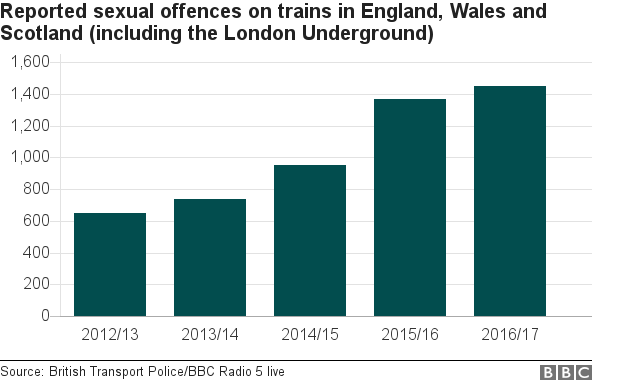
- Published23 August 2017
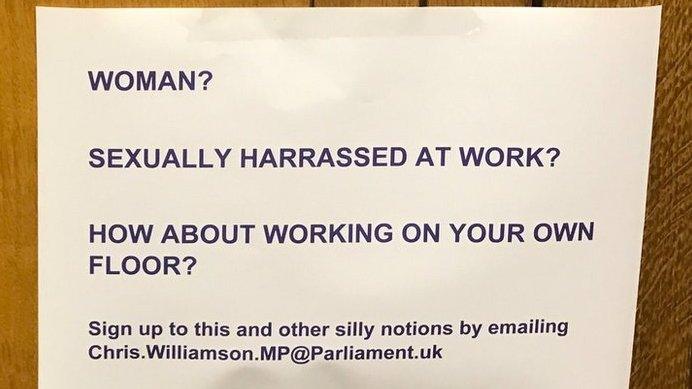
- Published23 August 2017
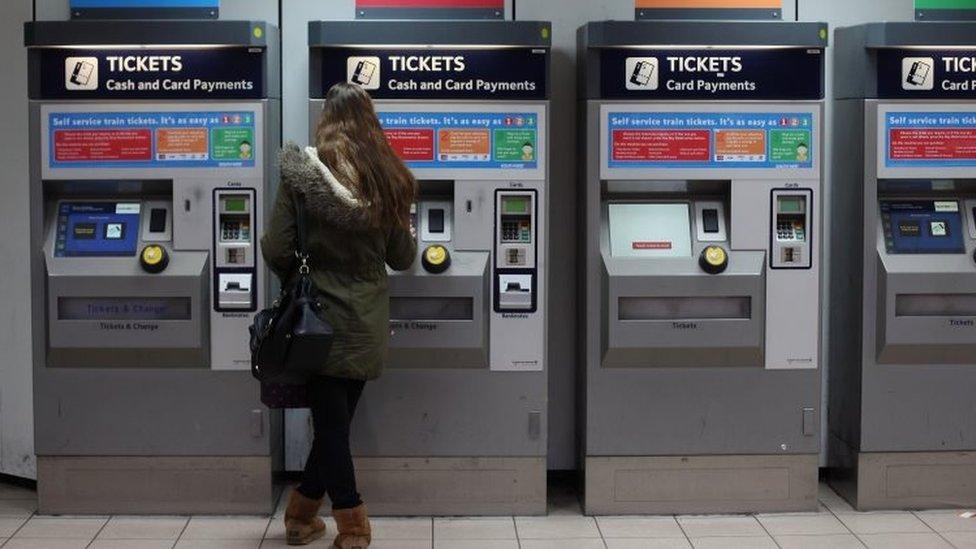
- Published26 August 2015
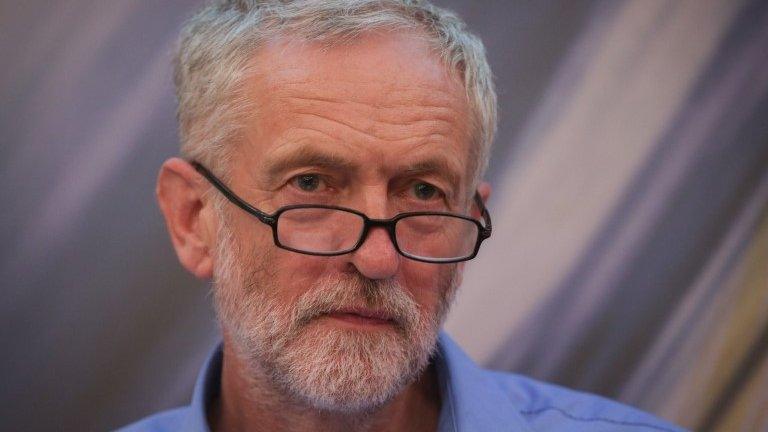
- Published26 August 2015
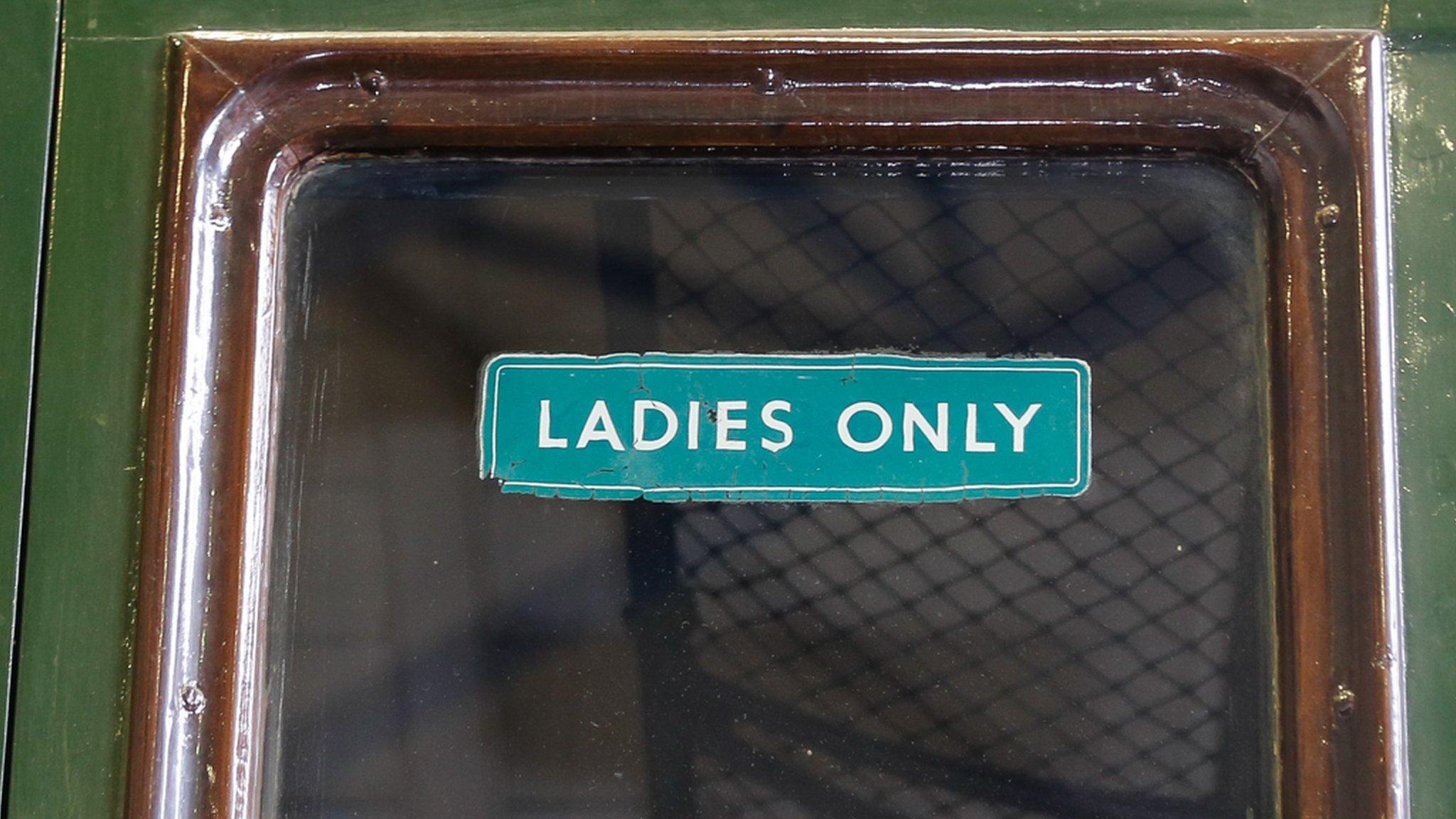
- Published29 October 2014
